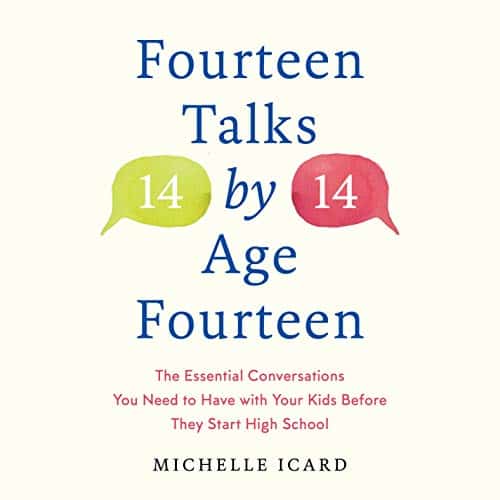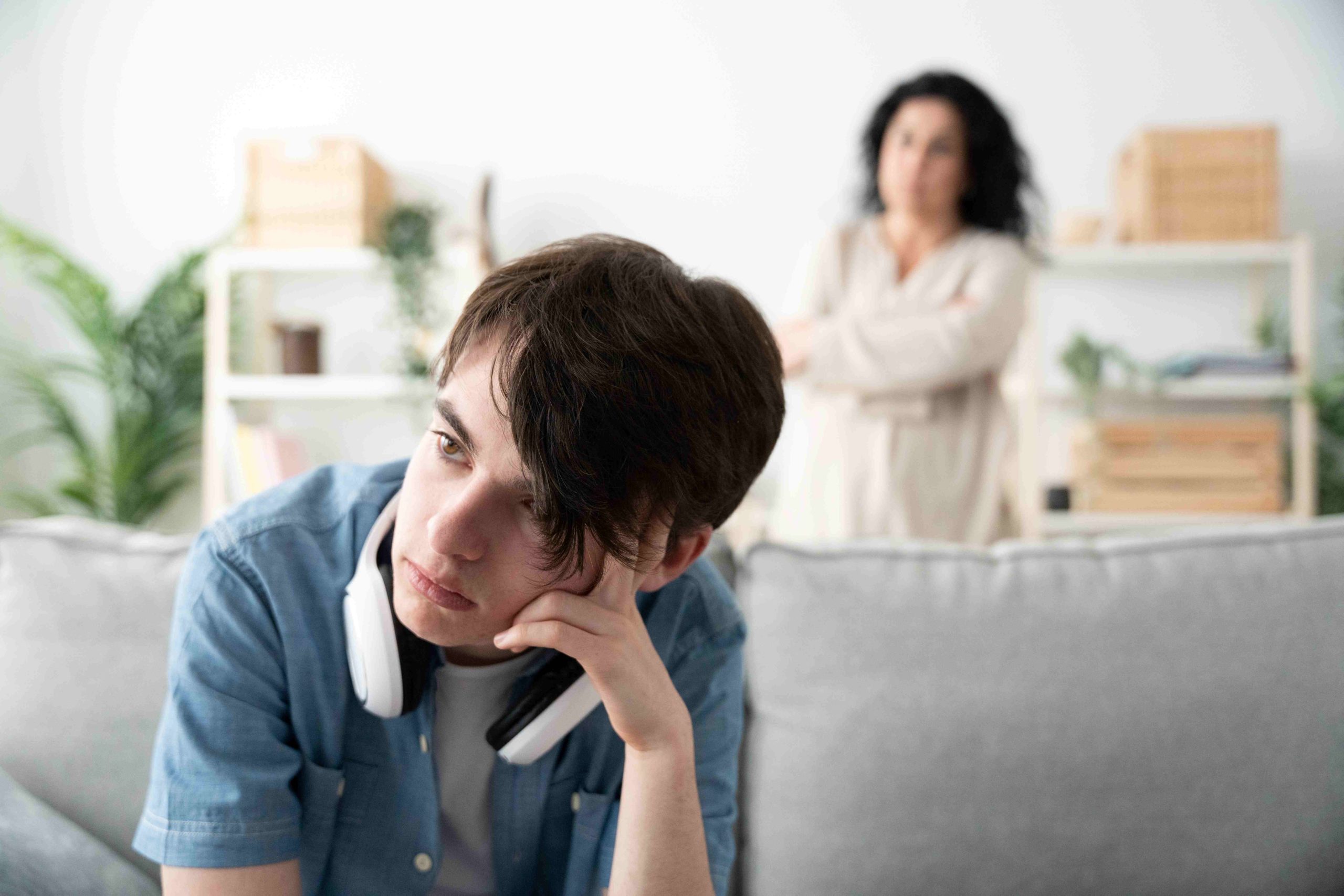
It used to be that when teenagers had sex, they did it with someone they were dating. Today, there’s lots of talk about teen hookups and casual sex. There’s far less dating, at least of the going-on-a-real-date variety.
What’s going on? Is it all about casual sex now?
Well, yes and no. There have been shifts in teens’ behavior, but even bigger shifts in the way teenagers think about sex. That gives parents an opening, because you have more influence than you might realize on your kids’ thoughts about sexuality.
Remember that the term “hooking up” can describe a wide range of behaviors. It may be oral or vaginal intercourse, or it may be just making out in the corner at a party.
The defining element of a hookup isn’t the activity, but the lack of expectation of commitment or relationship.
What the word “hookup” means to today’s teens
Thanks to popular culture, the internet, and social media platforms like Snapchat and Tiktok, teenage girls and teenage boys view sex much differently than they did a couple of decades ago.
More and more of what kids hear in songs and see in movies tells them that sex and feelings aren’t connected. You can be “friends with benefits” without getting emotionally attached, the story goes.
Sex is transactional; two people can make a deal to have sex without expecting anything from each other.
But this “sex is purely physical” message isn’t necessarily true, and is exactly why parents should talk to their kids about sex early and often.
Some people seem able to have sex without feelings getting involved, but many others can’t. For many people, especially teenage girls and women, the emotional connection goes hand in hand with the physical connection.
Unfortunately, teens often don’t understand that.
They hear about teen hookups and think they should be having them because everyone else is.
How much sex are teens actually having?
They may do things sexually (say, have sex or give oral sex) because they think they’re “supposed to” or to avoid disappointing a boyfriend or girlfriend. If they’re not sexually active, they think there’s something wrong with them.
Given all that pressure, it’s amazing that, in reality, most kids aren’t having casual sex.
A survey I did of 900 young adults (aged 18 to 25) found that the median number of total lifetime sexual partners was 3; the average was 6. This means some young people have many partners, but far more have only a few.
The most common number of lifetime partners reported was—get this—one. A lot of young people are more selective about sex than you (or their peers) might think.
In short, kids are immersed in a culture that says everyone is having casual sex, even though that’s simply not true.
Related: Most Teens Want Comprehensive Sex Education To Make Better Decisions
Talking to teens about sex and hookup culture
There are many reasons why teens should know about sex and everything that comes with it. From ensuring they know to protect themselves against STIs and unwanted pregnancies, to teaching teens consent, to countering teen hookup culture, it is vital that parents talk to their kids. Because remember—you can give kids much better, and more accurate information than they can get from screens, social media, and their peers.
6 Things to tell your teen when when talking about sex:
1. There’s not as much hooking up going on as they might think.
Movies don’t reflect reality, and IRL there’s a lot more talk about sex than actual sex. In fact, according to the Institute for Family Studies, “Fewer than 40% of American high schoolers have ever had sexual intercourse, a decline of over 15 percentage points since the early 1990s.” And, the article goes on to add that “Most teens are having less sex and delaying sex longer, and that sexually-active teens have fewer lifetime sexual partners.”
2. For most people, sex and emotions go together.
A lot of people, of any gender, prefer to share physical intimacy in the context of a relationship. So as much as kids want to believe they can be “friends with benefits” or have “casual, no-strings sex,” in reality, emotions and intimacy often come into play regardless.
3. Hooking up can cause disconnection from oneself.
When you have sex because you think you “should” or because the other person wants to, your body and your heart and mind aren’t aligned. Sex is better when heart, mind, and body are all on the same page. And it doesn’t feel good to look back and regret your choices—that you only had sex with someone out of partner or peer pressure.
Related: What I Wish My Mom Taught Me About Sex When I Was a Teen
4. They can always say No.
It is perfectly acceptable to enjoy doing something (kissing or petting, say) and want to stop at that. Even people who intend to hook up can change their mind at any point in the process. When it comes to sex, the less-ready partner’s feelings control. Sex should never happen unless both people are fully on board and feel that their boundaries are respected.
5. Hookup sex tends to be less pleasurable for girls.
While there are definitely both girls and guys out there who prefer casual hookups, girls tend to be more commonly on the side who don’t, often finding themselves in what an article in the Michigan Daily calls “a gray area.” Because, as this article explains, women and girls often participate in them anyways, “not because they want to but because they feel it is their only option as [hookup] culture becomes more and more normalized.” It’s important that we tell our kids—boys and girls—that if hookups aren’t for them, that’s okay and completely normal.
6. It’s good to have a personal plan.
Invite your teen to think about what kind of relationships and sexual experiences they want for themselves. What feels right for them as an individual? What do they want, and not want? (Don’t expect your teen to tell you what they’re thinking about this. The goal is just to getting them thinking rather than following the herd.)
You can’t keep your kid from hooking up if that’s what they really want to do. But you can give them information and perspective that will help them make sexual choices that are right for them. And you can always remind them all healthy relationships—sexual or not—should be respectful and enjoyable.
If you’re looking for additional tips and resources to help guide you through the teen years, we recommend Fourteen Talks by Age Fourteen: The Essential Conversations You Need to Have with Your Kids Before They Start High School by Michelle Icard.

Parenting teens and tweens is a tough job, but you’re not alone. Here are some posts that might help:
The Most Important Reason Teens Should Not Have Their Phones At Night
It’s Not “Just Pot” — Why We Need to Be Concerned About Today’s Marijuana
10 Things Girls Need from Their Moms During These Tough Teenage Years
The Best Documentaries To Watch With Your Teens and Tweens
*This post may contain affiliate links where we earn a small commission for purchases made from our site.







Leave a Comment